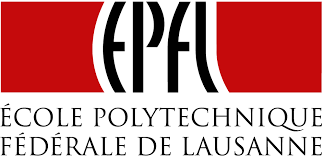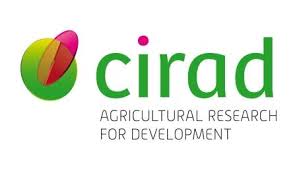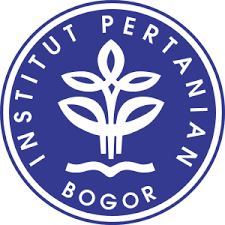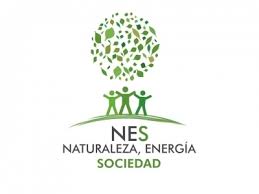
Overview
OPAL Indonesia was led by the Center for Agricultural and Rural Development Studies at Bogor Agricultural University (CARDS IPB) and the Center for International Forestry Research (CIFOR), whose research activities focus on three areas related to the development of oil palm plantations in Indonesia:
- Agrarian change and rural livelihoods system transformation
- Oil palm expansion and sustainability standards
- Market configurations of oil palm and independent smallholders
CIFOR was responsible for developing communication networks among stakeholders associated with the development of oil palm plantations, within the framework of being a ‘connecting link between science and policy-making processes’, particularly through methods like Companion Modeling (ComMod). CARDS IPB is responsible for generating scientific data to support the policy development of oil palm plantations, through research undertaken by the three PhD students.
To obtain site-level data, OPAL Indonesia established the district of Kutai Kartanegara in East Kalimantan as a case study location. At the village level, research activities focus on:
- the villages of Muara Kaman Ulu, Muara Kaman Ilir and Sabintulung in the sub-district of Muara Kaman.
- the villages of Long Beleh Haloq and Pulau Pinang in the sub-district of Kembang Janggut.
- Gunung Sari village in the sub-district of Tabang.
People
Center for Agricultural and Rural Development Studies at Bogor Agricultural University (CARDS IPB):
- Arya Hadi Dharmawan (Team Coordinator)
- Dyah Ita Mardiyaningsih (Project Manager)
- Faris Rahmadian (Research Assistance)
- Rivy Restavia (Finance
- Bayu Eka Yulian (PhD student I – Rural Sociology, IPB)
- Rizka Amalia (PhD student II – Rural Sociology, IPB)
- Fakhrizal Nashr (PhD student III – Rural Development and Regional Planning, IPB)
Center for International Forestry Research (CIFOR):
- Michael Allen Brady (Principal Investigator)
- Heru Komarudin (Project Manager)
- Budhy Kristanty (Communication Specialist)
- Beni Okarda (GIS specialist)
- Mira Handayani (Senior Accountant)
Goal
To improve the management of oil palm landscapes, through engaging stakeholders and boundary partners at regional, national and local levels with plausible scenarios developed through integrated platforms that merge the social, economic and ecological drivers shaping oil palm development, and assess their implications on biodiversity and ecosystem services. There are three specific objectives, each of which builds upon existing initiatives, datasets and project partners’ networks in the target countries. These objectives are to:
- Develop an understanding of the socio-political, economic and ecological drivers shaping landscape transformation associated with oil palm development under different management systems and their environmental and livelihood outcomes (i.e. describe the socio-ecological system and drivers of change).
- Develop conceptual models of oil palm landscapes that merge social and economic perspectives using participatory group modeling, and construct scenarios of possible futures explicitly addressing different management and policy options (i.e. construct integrated models and scenarios of change).
- Link science to practice by embedding research in policy dialogues and decision-making processes on management and regulatory frameworks at regional, national and sub-national scales (i.e. engaging institutions for change).
In the first stage (2015–2018), OPAL Indonesia focused on PhD student’s research on:
- The impact of oil palm expansion on smallholders’ livelihood strategies in Indonesia;
- Impacts of oil palm expansion and sustainability standards across different actors and production systems in Indonesia;
- Assessing supply chain interventions for sustainable palm oil and their impacts on market configurations and independent smallholders.
In the second stage (2018–2021), OPAL Indonesia focused on policy engagement at district and province level, by supporting government policy related to:
- The technical guidelines of High Conservation Value
- Establishment of the Forum of Sustainable Palm Oil
- Oil palm system information
Main activities
The activities under the coordination of CARDS IPB in 2017–2018 can be divided into two categories:
- PhD activities
PhD student I completed field research and published some results through national journals and international conferences (see peer-reviewed publications below); PhD student II undertook data collection and processing; while PhD student III prepared field research.
- Team activities
The Indonesian OPAL team introduced ComMod to several forums at local and national level, both directly and through video (Video I). A second video was made to increase public understanding of the problems of oil palm plantations in Indonesia based on the PhD research.
A series of workshops was also held to publish PhD findings and capture possible support that OPAL Indonesia could provide to policy makers.
Achievements
Preliminary research results have revealed what impacts oil palm expansion is having on different social categories of smallholders. OPAL research is being conducted in Muara Kaman and Kembang Janggut, two sub-districts of Kutai Kartanegara district. Muara Kaman represents oil palm plantations in downstream areas, with the smallholder population being made up of Kutai Melayu tribe members and Javanese transmigrants. Kembang Janggut sub-district, meanwhile, represents upstream oil palm plantations, with smallholders being made up of the Dayak tribe. These three different categories of smallholders are expected to have different responses to the expansion of oil palm plantation.
At least three types of producer organization are involved in oil palm plantations in Kutai Kartanegara:
- Large-scale plantations, which face specific issues such as large-scale land expansion that causes land disputes with the local community, over tenure claims. Examples of this are oil palm plantation development by: MPM in the villages of Muara Kaman Ulu, Muara Kaman Ilir and Bukit Jering; and PT. RKP in the sub-district of Kembang Janggut.
- The ‘Contract Farming Scheme’, also known as the PIR-Bun (Nucleus-Plasma). This typically faces challenges relating to conflicts between the ‘plasma’ (i.e. smallholders) and the ‘nucleus’ (i.e. the company running the oil palm estate), and a lack of clarity around property rights for the smallholder community, stemming from the fact that land belongs collectively to the community. Examples of this are conflicts between local communities and the ‘nucleus’ companies of PT. MPM in Muara Kaman Ilir, and PT. RKP in Kembang Janggut sub-district.
- Independent oil palm plantations owned by smallholder farmers. Critical issues faced by this type of producer organization are that the product price is totally determined by the external market, and that land expansion cannot be understood clearly.
OPAL Indonesia’s research activities took place in both peat and non-peat land areas. Peatlands are a vulnerable ecological zone, so local households’ livelihood systems are full of uncertainty; while non-peat land areas have lower levels of vulnerability. The OPAL Indonesia team, based at CARDS IPB, were in communication with key informants from Kutai Kartanegara district. Stakeholders came from district-level government, NGOs, oil palm plantation companies and smallholder farmers.
To spread the word on OPAL Indonesia’s activities, CARDS IPB made OPAL booths with name OPAL PROJECT on CARDS IPB website: http://psp3.ipb.ac.id/web/?page_id=2296
See also:
Workshop and game sessions with local policy makers in Indonesia (January 2018)
Workshop and game sessions (August and December 2017)
ComMod training in Bogor (September 2016)
Project site visit to East Kalimantan (September 2016)
Peer-reviewed Publications
-
-
- Nashr, F., Putri, E.I.K., Dharmawan, A.H., Fauzi, A. (2021). The sustainability of independent palm oil smallholders in multi-tier supply chains in east Kalimantan Indonesia. International Journal of Sustainable Development and Planning, Vol. 16, No. 4, pp. 771-781.
- Dharmawan, A.H.; Mardiyaningsih, D.I.; Komarudin, H.; Ghazoul, J.; Pacheco, P.; Rahmadian, F. (2020). Dynamics of Rural Economy: A Socio-Economic Understanding of Oil Palm Expansion and Landscape Changes in East Kalimantan, Indonesia. Land
- Hasanah, N.; Komarudin, H.; Dray, A.; Ghazoul, J. (2019) Beyond Oil Palm: Perceptions of Local Communities of Environmental Change. Frontiers in Forests and Global Change
- Yulian, B. E., Dharmawan, A. H., Soetarto, E., & Pacheco, P. (2020). Silent Expansion of Oil Palm Plantation: The Tragedy of Access Between Bundle of Right and Power. Journal of Economics and Sustainable Development
- Yulian, B. E., Dharmawan, A. H., Soetarto, E., & Pacheco, P. (2018). Livelihood Dilemma of The Rural Household Around The Oil Palm Plantation in East Kalimantan. Sodality: Jurnal Sosiologi Pedesaan, 5(3).
-
Other publications
-
-
- Gaming Indonesia’s next move, by Natasha Vizcarra (CIFOR News, 2021)
- Langkah Maju Permainan di Indonesia, by Natasha Vizcarra (CIFOR News, 2020)
- Wearing Borneo’s farmers shoes through a role-playing game, by Nur Hasanah, Fidel Chiriboga-Arroyo and Nicole Ponta (ETH Ambassadors Blog, July 2018)
- Palm Oil Diplomacy at the Crossroads, by Fakhrizal Nashr, Arya Hady Dharmawan, Jaboury Ghazoul (May 2018)
- Oil palm landscapes: Indonesia’s game of palms, by Suzanna Dayne (Forest News, February 2018) (2/4)
- Oil palm landscapes: Playing for keeps, by Suzanna Dayne (Forest News, February 2018) (1/4)
- Agrarian structure and oil palm plantation agroecosystem in Kutai Kartanegara District, by Arya Hadi Dharmawan, Bayu Eka Yulian and Faris Rahmadian, IPB CARDS (May 2016)
- Expansion of oil palm plantations and changes in social, economic and rural ecology: a case study in Kutai Kartanegara, by Arya Hadi Dharmawan, Dyah Ita Mardiyaningsih and Bayu Eka Yulian, IPB CARDS (May 2016)
- Declining palm oil prices: Good news and bad news for smallholders, by Jaboury Ghazoul and others (Mongabay, March 2015)
-












